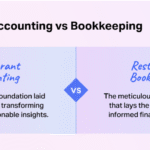It’s challenging to make products and services stand out in modern marketplaces. Customers are overwhelmed with choice, meaning buying decisions often come down to what added value companies can offer. This is where an excellent customer engagement strategy comes into play.
This blog explores how to define and improve customer engagement as well as the benefits it can bring.
What is a Customer Engagement Strategy?
A customer engagement strategy is a plan that outlines how a business intends to interact with its customers throughout their relationship. It’s about understanding the customers’ needs, preferences and behaviours and using that understanding to communicate with them.
Engagement strategies should be dynamic, evolving with the customer’s journey and the changing market landscape.
Why is Having a Customer Engagement Strategy Important?
A well-defined customer engagement strategy is crucial for maintaining competitiveness in today’s dynamic marketplace, setting the tone for how customers perceive and interact with the brand. It turns casual shoppers into loyal customers and transforms first-time buyers into long-term customers.
Moreover, engagement strategies enable businesses to better understand their customers’ preferences, behaviours and needs, which can help them improve their products, services and overall customer satisfaction.
Strategies for Excellent Customer Engagement
Here are techniques to create an exceptional customer engagement strategy that resonates with buyers and drives results:
Know the Audience
Understanding the target audience is critical to any successful customer engagement strategy. Companies should conduct market research to learn the audience’s needs, pain points and buying preferences.
Leverage Multiple Channels
Engaging with customers across various channels is helpful as each channel offers unique opportunities for interaction and engagement. Companies should utilise social media platforms, email marketing, mobile apps, websites, live chat and offline channels such as events and workshops to reach customers effectively.
Implement Loyalty Programmes
Rewarding customers for their loyalty with discounts, exclusive offers and early access to new products encourages repeat business and fosters a sense of value and appreciation among the customer base.
Provide Customer Service Training
Training customer service teams to handle inquiries efficiently and empathetically is crucial. Customer service training helps representatives interact positively with clients, resolve complaints and provide service levels that retain customers.
Use Customer Feedback
Regularly collecting and acting on customer feedback helps improve products and services. This technique also demonstrates that the business values and will act on customers’ opinions.
Create Quality Content
Providing valuable, relevant and engaging content that addresses customers’ needs and interests can be done through blogs, videos or social media posts that offer helpful information, entertainment or inspiration.
Host Events and Webinars
Events and webinars showcase products and create opportunities to make customers aware of new offerings. They also provide a platform for interaction and engagement with and between customers.
Utilise Technology and Automation
Implementing CRM systems and marketing automation tools can streamline communications and enhance customer experiences. These tools help send timely, personalised messages and understand customer behaviours and preferences.
Provide Communication Skills Training
Providing the team with communication skills training ensures they can interact with customers effectively. Representatives develop abilities to listen actively, empathise and build rapport with clients.
Conclusion
Creating an excellent customer engagement strategy is essential for building long-lasting customer relationships. By understanding the customers, personalising interaction and continuously improving based on feedback, a business can foster loyalty, enhance its brand’s reputation and drive growth.












